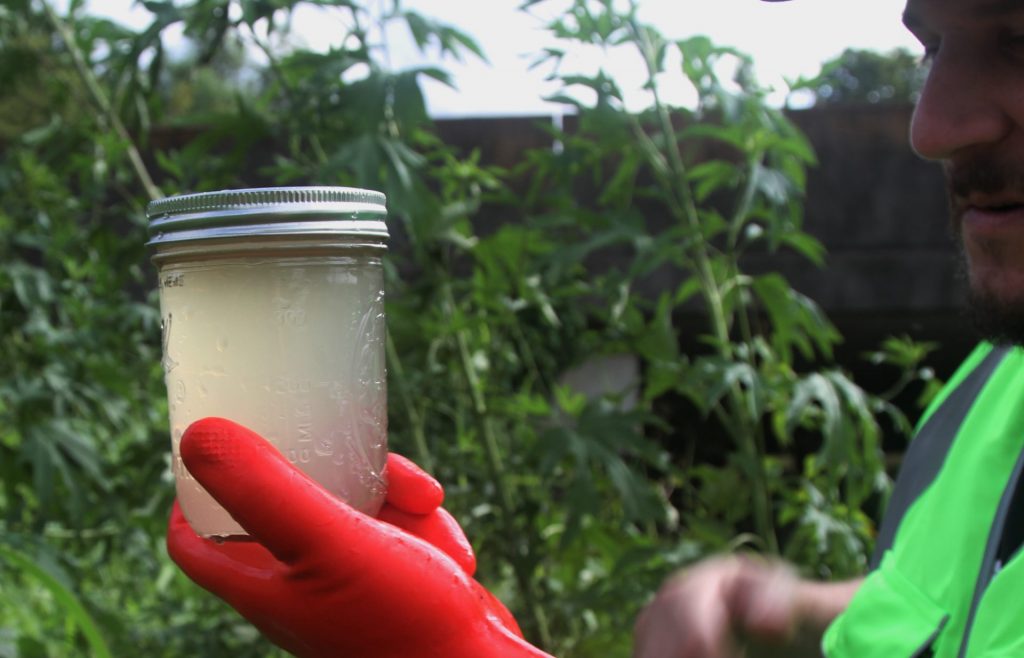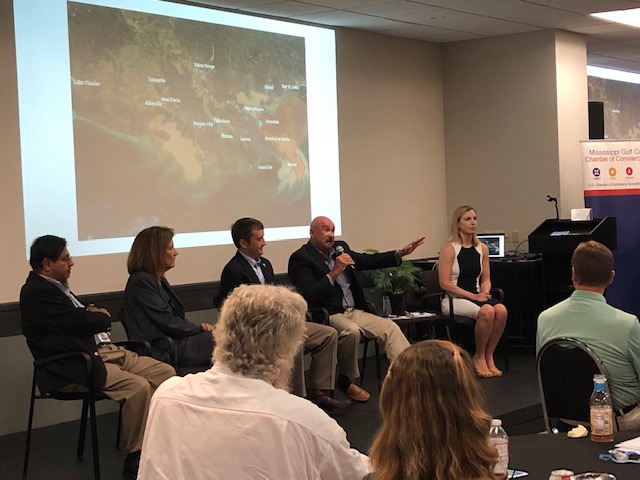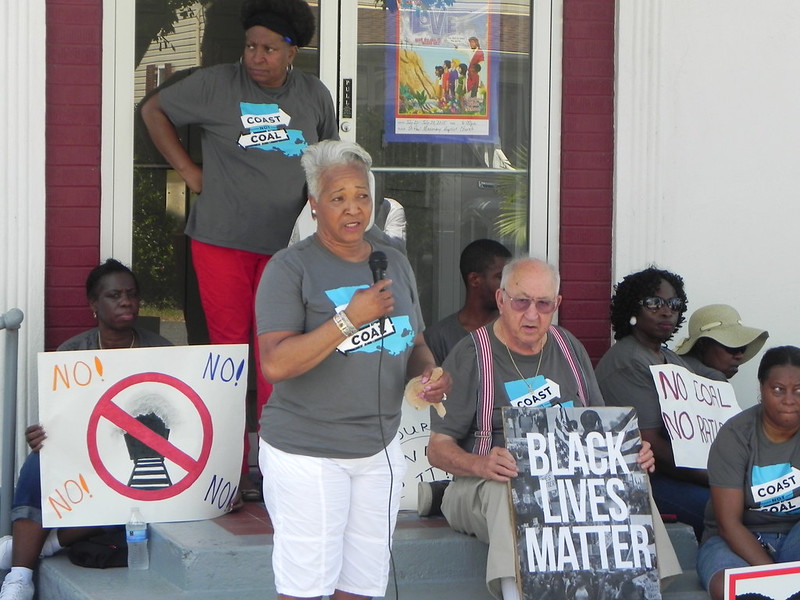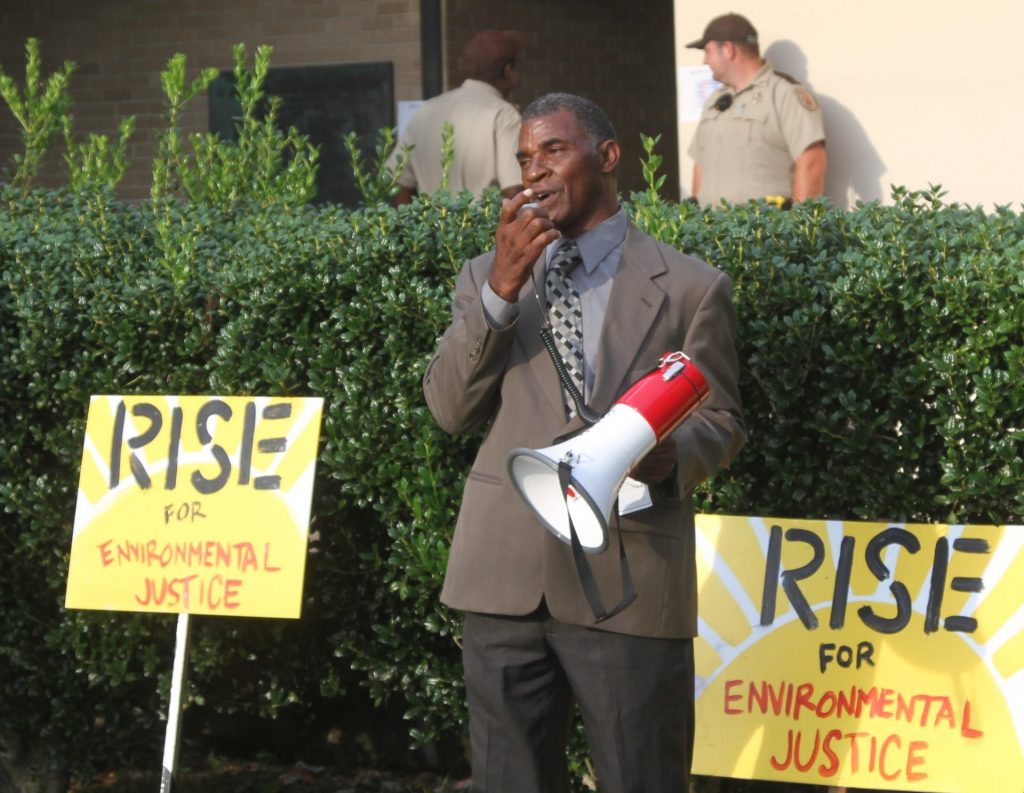How We Work
1: Monitor, Research, and Analyze
Our Science and Policy Team uses research and organizational expertise to identify and assess the threats that Gulf communities face. We analyze the impacts on communities and natural resources to develop strategies for tackling those threats.

Work with impacted communities to research and document the intersection of chemical risk, water, and land impacts with human health, emphasizing impacts to frontline communities.
Review and comment on permits for wetland destruction, emphasizing environmental justice and frontline communities and ensuring that impacts to coastal and floodplain wetlands are avoided or minimized.
Utilize Healthy Gulf’s expertise in water law and policy to ensure state water quality standards and water discharge permits are protective of the health, livelihoods, and culture of Gulf Coast communities.
Identify and promote strategies to reduce pollution in the Gulf of Mexico and major rivers systems that flow into it.
Monitor and report known and potential polluters.
2: Influence Government Decisions
Advocate at the local, state, and federal level for the rigorous review of projects required by law, fully considering all negative as well as positive impacts to local communities and environments.
Ensure that in permitting decisions, decision-makers require full compliance with all applicable laws and regulations, and avoid and minimize negative impacts.
Use strategic litigation to ensure laws and regulations are fully implemented and enforced.
Work to strengthen and resist efforts to roll back laws and regulations intended to protect communities and the environment.
We hold industry accountable, using the results of our research and analysis of proposed decisions to highlight community concerns and ensure that decision-makers and industry fully comply with applicable laws and regulations.

3: Support Community Organizing and
Mobilization
We use outreach, technical assistance, and organizing strategies to support frontline communities and build the capacity of those communities to address threats to their health and environment.

Advocate for and actively support robust community engagement in planning and decision-making at the local, state, and federal level on all decisions affecting a community.
Sponsor workshops and trainings to build the power of frontline communities to voice their concerns and influence decision-makers.
Work in coalition with impacted communities and organizations to uplift community concerns about the impact of petrochemical and other industrial development on human and environmental health and push for solutions.
4: Utilize Strategic Communication
and Collaboration
Continually assess communications tools and best practices to build and share power.
Train and elevate spokespeople and community storytellers from frontline communities, and collaborate with our allies to address environmental and climate justice, uplifting the stories of frontline communities.
Pilot new and creative outreach strategies focused on engaging diverse audiences, supporters, and members.
Strengthen existing strategic partnerships and build new ones with chefs, fishers, musicians, and others dependent on the natural resources of the Gulf for their cultures and livelihoods.
Healthy Gulf builds coalitions and partnerships (housing, voting rights, labor, etc.) to identify intersections between environmental and justice issues.
Participate in national coalitions to resist attacks on the Clean Air Act, Clean Water Act, National Environmental Policy Act, and other important environmental laws.
We collaborate with groups and communities across the Gulf to raise awareness of environmental pollution and elevate the stories of frontline communities to build a base of engaged leaders needed to resist environmental degradation and injustice.

